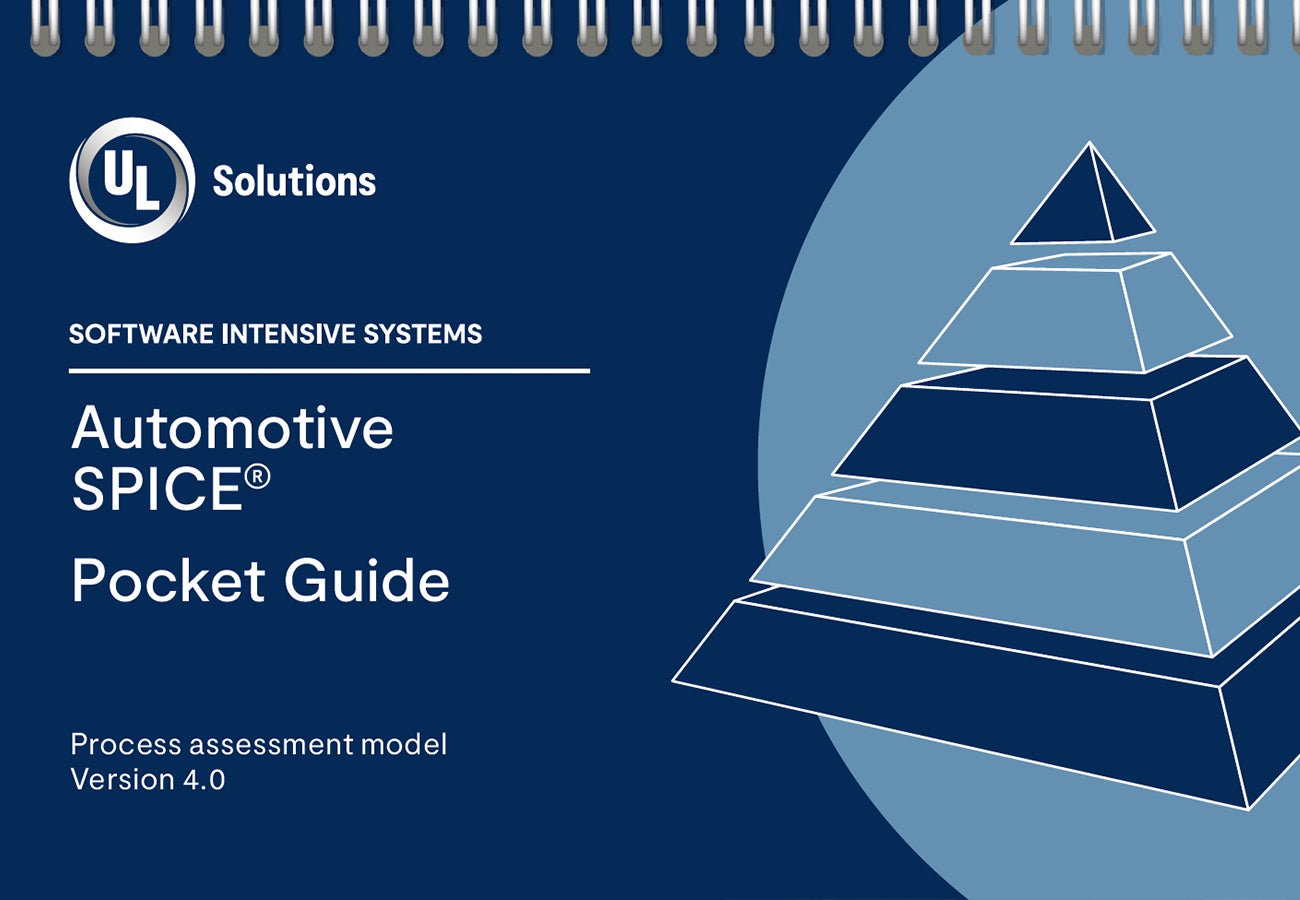Automotive SPICE
Applying Automotive SPICE® so you can create reliable R&D processes and develop and integrate high-quality products with confidence.
Smooth integration is the key to success for the development of advanced automotive systems — and a prerequisite for a seamless integrated vehicle is reliability. Automotive SPICE® can help you with reliable development processes to develop and integrate automotive systems with confidence.
As a leading management consultant in the field of automotive electronics, we have played a pivotal role in the shaping of Automotive SPICE® (ASPICE), the standard model for process improvement. We can provide you with an understanding of the ASPICE process model and its extension to adjacent mechatronic domains, demonstrating how we can help you improve the reliability and effectiveness of your R&D.
ASPICE Over Simplified
As a process model, ASPICE can help you structure your R&D process landscape methodically. In this way, ASPICE helps guide design and product development in the right order with the intended outcome in mind.
Our services help you navigate ASPICE with greater ease and confidence.
UL Solutions Software Intensive Systems experts help our customers tackle the complexity of software-defined vehicles to deliver increased safety and reliability. We apply our team’s expertise in research-backed workflow improvement and global safety science leadership to help our customers navigate compliance with evolving standards, regulations and requirements for automotive processes and safety-critical products and services.
Receive support with
- Improving the quality of your systems
- Establishing processes
- Managing deadline pressures and increasing system complexity
- Managing ongoing change requests from customers
Our Automotive SPICE® Training Courses and consulting services focus on an integrated development cycle. They link ASPICE with highly interrelated areas, including functional safety, autonomy safety and cybersecurity, that play important roles in both regular E/E systems and for connected vehicles to help advance the mobility industry.
By completing ASPICE assessment, you can demonstrate that your development processes fulfill the expectations of your customer, especially the original equipment manufacturer (OEM). We also show you how you can apply ASPICE assessments to safety and security, which can help you save time and effort.
Our consulting services can help you:
- Evaluate the status of capabilities and processes through potential analysis, gap analysis and formal ASPICE assessments
- Systematically improve existing workflows and methods to achieve the required capability levels with a strong focus on your business goals
- Reduce process overhead by supporting efficient tool implementations, for example, to implement bidirectional traceability
- Fulfill the requirements of ASPICE in harmony with functional safety, cybersecurity and agile requirements
- Fulfill the requirements of ASPICE extensions, including Automotive SPICE® for Cybersecurity, SPICE for Mechanical Engineering as well and Hardware Engineering SPICE and Machine Learning Engineering SPICE which have been included in the scope of Automotive SPICE® v4.0

ASPICE assessments
Evaluate and optimize the reliability of your automotive R&D projects and processes.

ASPICE Training Courses
Understand how you can improve and evaluate the reliability of your automotive R&D processes.

Original ASPICE Pocket Guide
The original ASPICE v4.0 pocket guide is a handy overview of the process requirements.
Frequently Asked Questions
- What is ASPICE?
ASPICE is a process reference model for assessing and improving software and mechatronic development processes in the automotive industry. It's based on the ISO/IEC 330xx series and tailored specifically for automotive software and system development.
- Why is ASPICE important?
ASPICE is crucial because it:
- Provides a standardized approach to assess supplier capabilities
- Can help reduce risks and minimize failures in automotive software development
- Can help improve collaboration and alignment across the supply chain
- What benefits does implementing ASPICE provide?
Implementing ASPICE can lead to:
- Quality improvements
- Risk reduction
- Cost reductions in the medium to long term
- Increased chances of securing contracts with major automotive manufacturers
- What training courses are offered?
Our training portfolio offers you a variety of training courses tailored to the specific needs and roles when applying the process model and the extensions that are available for Automotive ASPICE. We offer a full range of training courses: introductions, personal certification and courses on ASPICE and SPICE model extensions.
- What are the key goals of ASPICE?
The main objectives of ASPICE include:
- Enabling continuous innovation and product development
- Reducing potential problems in initial stages
Providing a meticulous approach to both ideation and development
- How is ASPICE structured?
ASPICE uses a two-dimensional framework:
- Process dimension – Assesses individual process steps
- Capability dimension – Evaluates process maturity on a scale of 0-5
- What are the ASPICE capability levels?
ASPICE uses a 0-5 capability determination scale. Most OEMs look for partners that can achieve level 2 or 3, which indicates the ability to deliver correctly created elements.
- What are the main process groups in ASPICE?
ASPICE organizes processes into major process groups:
- Systems Engineering processes (SYS.1-5)
- Software Engineering processes (SWE.1-6)
- Machine Learning Engineering processes (MLE.1-4)
- Hardware Engineering processes (HWE.1-4)
- Management processes (MAN.3)
- Supporting processes (SUP.1, 8-11)
- Validation processes (VAL.1)
- What is an ASPICE assessment?
An ASPICE assessment is designed to evaluate whether the processes of your project are designed to deliver the process outcomes that ASPICE requires. Each process description within ASPICE requires certain work products and defines criteria to determine if these requirements are fulfilled.
In the assessment, which is carried out in an ongoing project, a lead assessor in cooperation with a co-assessor checks the implementation of a real process against the process specifications by ASPICE.
- Who requires ASPICE compliance?
Large German and international automotive manufacturers often require their suppliers and sub-suppliers to demonstrate a predefined ASPICE capability level.
Get connected with our sales team
Thanks for your interest in our products and services. Let's collect some information so we can connect you with the right person.


